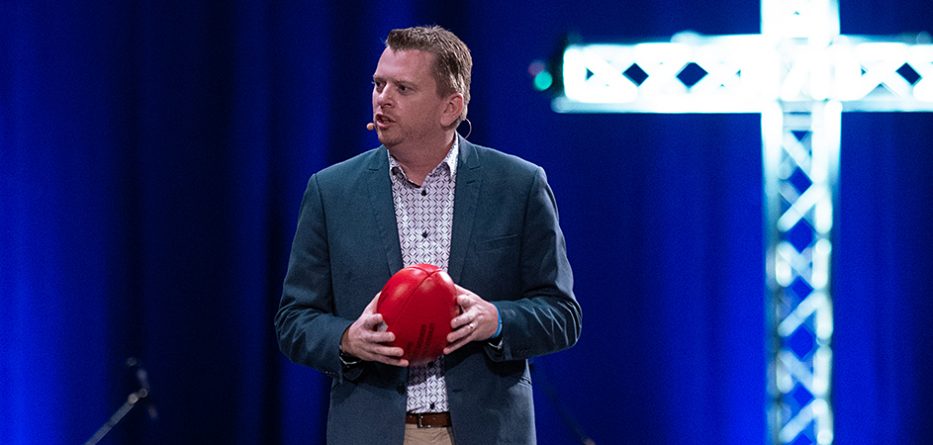Malcolm Hart, the director of the Australian Catholic Bishops Conference’s Office for Youth, has been appointed director of the National Centre for Evangelisation.
Mr Hart, who last week served as director of the Australian Catholic Youth Festival for the fourth time, will lead a revamped National Centre for Evangelisation, which will take on the functions of a number of offices – including the Office for Youth.
“It has been a privilege to lead the Office for Youth for the past 10 years, but I am very much looking forward to the challenge that lies ahead,” Mr Hart said.
“The new National Centre for Evangelisation will continue its central task of educating the faithful and those who are searching, including through the Catholic Enquiry Centre, and will take on the critical work of promoting the participation of lay people, including young people and women, in the life of the Church.”
Archbishop Christopher Prowse, chair of the Bishops Commission for Evangelisation, Laity and Ministry, said the Centre will have three focus areas: lay participation, formation and youth.
“The work of evangelisation is central to the life and mission of Christ’s Church and, in some ways, our current structures have caused us to work in silos,” he said.
“Our new National Centre for Evangelisation will work across a broader range of areas, utilising the skills of the new team in the most effective way possible, rather than asking them to work in discrete parts of the Church.”
Within the Bishops Commission for Evangelisation, Laity and Ministry, the work of the Offices for Lay Pastoral Ministry, the Participation of Women and Youth will be taken on by the National Centre for Evangelisation.
The advisory bodies associated with each of those offices will also cease, with a new Council for Evangelisation, Laity and Ministry to be formed to support and advise the Bishops Commission.
Given its significant work in ministry and formation of overseas priests and religious, the Australian Catholic Migrant and Refugee Office will also become part of the Commission for Evangelisation, Laity and Ministry.
Existing staff within the ACMRO will continue, with the director of that office taking on essential responsibilities currently undertaken by the Office for Clergy Life and Ministry, which will also cease.
“We have lost the services of some fine people in the offices that will no longer exist, but new roles were established in the National Centre for Evangelisation. Two of those three roles have been filled – by Malcolm Hart and by Sharon Brewer, who has worked in evangelisation for many years,” Archbishop Prowse said.
He said that key projects like the Australian Catholic Youth Festival, the Leadership for Mission program for young Catholic women and the Proclaim conference remain priorities for the bishops and will continue.
Archbishop Mark Coleridge, president of the Australian Catholic Bishops Conference, said the Conference has had to make some difficult financial decisions.
“The bishops are well aware of the human toll of these decisions, especially when it touches upon the livelihood of people who have served the Conference so well,” Archbishop Coleridge said.
“The decisions have affected every part of the Conference that the bishops fund through diocesan levies. The changes in no way reflect on the quality of the work that has been carried out. The local and national priorities for the Church all cost money to deliver and support, and our current circumstances led us down a difficult but unavoidable path.”
Archbishop Coleridge said one of the considerations for the bishops was what work is best carried out at the local level and what work is best carried out at the national level.
“There is no doubt that the Bishops Conference will continue to hear from those working in diocesan and other ministries, with networks of people from around the country able to inform the various Bishops Commissions and their work,” he said.
The decisions arose from a review of the Conference’s finances, conducted by experts from within and outside the Church’s employment. One of the review’s goals was to ensure the financial sustainability of the Bishops Conference and its various agencies.
With thanks to the ACBC.








